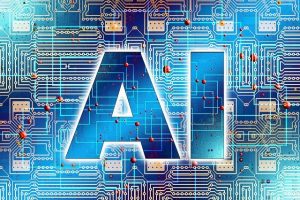
Facebook AI Marketing
You’ve presumably heard of machine learning and artificial intelligence if you frequently use the Internet (AI). Even the greatest minds of our time cannot agree on the subject, which has been a point of contention for years. Recall the discussion between Mark Zuckerberg and Elon Musk. Here is a summary.
However, the idea of a superintelligence powered by machine learning divided the two modern technology titans. They disagreed on whether robots could outperform humans in intelligence and make people obsolete. Even if such a threat materialises, it won’t happen anytime soon. The humanoid robots of today are pretty cute.
AI is more than just robots. This technology is already in service in several fields, including banking, self-driving cars, virtual assistants, and advertising. Since the latter is what we’re all here for, let’s look more closely at what AI advertising is, what artificial intelligence advertisements are, how the most prominent ad platforms use them, and what advantages eCommerce store owners and digital marketers stand to gain from it.
How Facebook uses AI for marketing?
Yes, this software is interesting, but how will it help you to increase your sales? Facebook is the answer.
People are identified by Facebook based on their interests, demographics, and online activity, thanks to sophisticated AI technology. At first glance, this might seem standard, but Facebook has the perfect resources for extensive machine learning. Facebook, one of the numerous widely used social networks, has a staggering amount of data on us. Instagram, the third-most popular platform, is also under its control. Machine learning is operated by Facebook’s software to continuously scrape data in real-time, learning from our shifting preferences and habits as well as its failures and successes.
By doing this, Facebook can recognise members of a particular interest group who are likely to respond favourably to an advertisement. The advertiser can also target Lookalike Audiences or individuals the algorithms believe will be receptive to the ad’s message.
The US intelligence community is concerned about foreign advertising influencing our elections partly because Facebook and Instagram ads can be highly customised and personalised. There is no denying the power of this technology.
What is the difference between marketing by humans and Facebook’s AI?
The cost to people in terms of lost jobs is the main topic of discussion regarding bots and AIs, as well as broader workforce automation. While the creation and upkeep of sophisticated B2C bots will undoubtedly result in several jobs for developers and advanced digital marketers, the number of customer support agents whose jobs will be in jeopardy is likely to outnumber these direct beneficiaries of the innovation.
There is a way ahead for digital marketers engaged in B2C chat: learn and become an expert in bot and AI scripting.
Facebook’s AI Algorithm for Marketing
Facebook Ads are advantageous for both advertisers and Facebook users. Ad delivery can be optimised to provide users with relevant ads, increase conversions, and increase return on ad spend for marketers (ROAS). Facebook started making AI-based technology available to small business owners in addition to large ad agencies with armies of marketers when AI and machine learning began to outperform marketers’ manual work. Here are some ways that Facebook Ads’ machine learning ad tools benefit online retailers and digital marketers:
An AI-powered framework called Power 5 assists advertisers in maximising their return on investment (ROI). Five main strategies are included in this framework:
1. Power 5
An AI-powered framework called Power 5 assists advertisers in maximising their return on investment (ROI). Five main strategies are included in this framework:
- You can reach more relevant audiences and boost conversions by making customer details, and Pixel events available on Facebook hashed (converted into lines of characters).
- Account structures have been streamlined to enable advertising algorithms to find the best-performing creatives and platforms and to optimise campaigns in real-time.
- By allocating a single budget to various ad sets, campaign budget optimization spends money only on the campaigns that are performing the best.
- Automatic placements of display ads on various platforms, including Facebook, Instagram, Messenger, WhatsApp, and others, to relevant audiences.
- Based on the web store content that users have viewed and the actions they have taken, dynamic ads show people targeted advertisements.
2. Campaign Measurement
Delivering ads to consumers is not the only consideration in digital advertising. Monitoring performance is essential for determining whether the strategy is working and, if not, what adjustments need to be made. As a result, Facebook unveiled the machine learning-based data-driven attribution (DDA) model.
DDA is an attribution model that monitors the development of your Facebook ads with artificial intelligence. It demonstrates how Facebook usage results in conversions. Facebook refers to these activities as “touchpoints.” They consist of web store visits, clicks, and impressions before the conversion.
To ensure that such an attribution model is reliable, bias is examined. The Facebook conversion lift studies that didn’t use this model are contrasted with all DDA findings. This approach guarantees that the outcomes won’t be over- or underestimated.
Final words
Digital business is by no means in danger from artificial intelligence. Instead, they greatly simplify people’s lives. AI increases digital advertising’s effectiveness. Facebook and Google have invested a lot of time and resources to power their ad platforms to develop machine learning technology.
Starting to use AI in digital advertising was well worth it. Advertisers no longer need to monitor ad performance and adjust campaign settings daily to run highly relevant ads that will increase ROAS and sales. Ad solutions outside of Facebook and Google offered even easier automation, enabling company owners and marketing managers to spend minutes, or less, per day setting up and optimising ads.
Understanding AI in advertising and ensuring that your ads benefit from it may be challenging. The good news is that you’re not by yourself in this. And wisely helps you ensure that the machine learning algorithms used by Facebook and Google optimise your campaigns.



